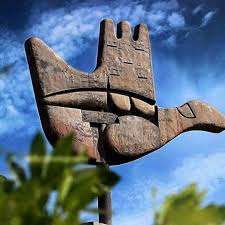#Chandigarh #Article240 #UnionTerritory #Punjab #Haryana #CentralGovernment #MHA #PIB #Governance #Federalism
Chandigarh: The Central Government has issued a clear clarification to quell political unrest in Punjab, confirming there is no proposal to alter Chandigarh’s existing governance or administrative structure. This statement follows widespread speculation that the Union Territory (UT) might be brought under the ambit of Article 240 of the Constitution.
Key Details from the Central Government Statement:
-
No Governance Change: The Central Government explicitly stated that the proposal “in no way seeks to alter Chandigarh’s governance or administrative structure” and does not aim to change the traditional arrangements with the states of Punjab or Haryana.
-
Purpose of Proposal: The only proposal under consideration is to “simplify the Central Government’s law-making process” for the Union Territory.
-
No Final Decision: Officials confirmed that no final decision has been taken on the matter.
-
No Bill in Parliament: The Ministry of Home Affairs (MHA) affirmed there is “no intention of introducing any Bill to this effect in the upcoming Winter Session of Parliament.”
-
Consultation Assured: Any suitable decision will be taken only after “adequate consultations with all stakeholders,” ensuring the interests of Chandigarh are kept in mind.
Context: The Article 240 Controversy
The recent political discussions intensified after reports suggested a Constitution Amendment Bill might be introduced to include Chandigarh under Article 240.
What is Article 240?
Article 240 of the Indian Constitution empowers the President of India to make regulations for the peace, progress, and good government of certain Union Territories that do not have a Legislative Assembly.
-
It currently applies to UTs like the Andaman and Nicobar Islands, Lakshadweep, Dadra and Nagar Haveli and Daman and Diu, and Puducherry (when its Assembly is dissolved or suspended).
-
Regulations made under this Article have the same force and effect as an Act of Parliament and can even repeal or amend existing parliamentary laws applicable to the UT.
Why the Uproar in Punjab?
Chandigarh is a Union Territory that serves as the joint capital of both Punjab and Haryana. Currently, the Governor of Punjab also functions as the Administrator of the UT of Chandigarh.
The political parties in Punjab see the move to place Chandigarh under Article 240 as:
-
An attempt to weaken or dilute Punjab’s historic and legal claim over the city, which the state has long asserted.
-
A potential path to appointing an independent Administrator or Lieutenant Governor, thus disconnecting the UT’s administrative head from the Governor of Punjab.
The Centre’s clarification aims to address the political sensitivity by assuring stakeholders that the core governance and administrative arrangements will not be affected.
#Chandigarh #Article240 #UnionTerritory #Punjab #Haryana #CentralGovernment #MHA #PIB #Governance #Federalism

